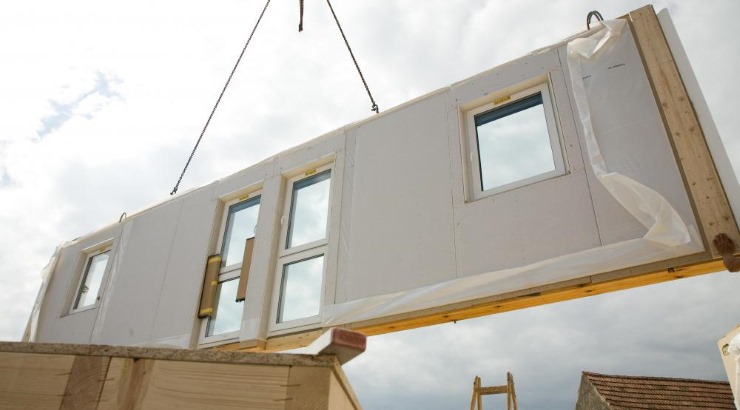Industry News
Prefab Homes in Kenya: Great Potential, Numerous Hurdles
Brick and mortar still account 95 per cent of building materials in the country.

The use of prefabricated technology has been touted as a viable means to address the acute housing shortage in the country.
Thanks to its ability to lower building costs, companies that focus on the delivery of low-cost homes have in recent years invested heavily in prefab technology in a bid to cash in on the rising demand for affordable housing.
The National Housing Corporation has for example built a Sh1 billion expanded polystyrene (EPS) factory in Machakos, with a capacity to produce 126,720 panels annually. The panels have the potential to lower costs by up to 30 per cent.
Koto Housing, an affordable housing solutions provider, has also invested heavily in alternative building technology and so has US-based International Green Structures, which uses rice and wheat husks to manufacture building panels.
The firm is building a Sh1.3 billion panel-making company in Thika, with a capacity to manufacture 12,000 housing units annually.
But despite the massive investments in new technologies, brick and mortar still account for 95 per cent of building materials in the country.
RELATED: US Firm Stirs Up Kenyan Market with Sh850k Homes
According to NHC boss Andrew Saisi, many property developers are sceptical of the EPS technology. This has slowed down the development of mass housing projects
The NHC plant had targeted to facilitate the construction of 30,000 houses a year.
Another hurdle is the lack of professional support for prefab technology, with a majority of graduates and practising builders not familiar with alternative building technologies.
“A lot of them [professionals] are still analogue and this is an area we are trying to improve,” he said at a recent seminar on affordable housing.
RELATED: NHC Goes Hi-Tech with Prefab Materials Factory
The lack of approved quality standards has also been cited as a major challenge for the sector as the Kenya Bureau of Standards has yet to standardise the material.
“We are pushing for standardisation of EPS to protect consumers because a lot of people are now doing it [manufacturing the panels] without putting in safety requirements,” he said.
Mr Saisi’s sentiments have been echoed by Charles Kabubo, the acting director for the Sustainable Materials Research and Technology Centre [SMARTEC] at the Jomo Kenyatta University of Agriculture and Technology.
“There is no reason why Kenya cannot have the standard [for alternative building technology],” Mr Kabubo said.
SMARTEC runs a factory that manufactures building blocks from stone dust. Dubbed Eco-blocks, the material can save up to 60 per cent of walling costs.














